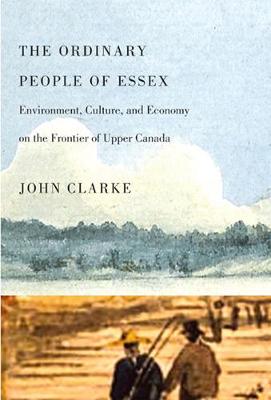Carleton Library
3 total works
Clarke covers a remarkable number of topics, including geographic factors in the choice of agricultural land, land acquisition and clearance, energy expended in clearing and planting the land, and selection of specific crops and their extent and yields in particular combinations of soils. He also investigates the geographic parameters for wheat production - which drove the local economy - and the cultural origins of farmers as it relates to their use of intensive and extensive agriculture. Brimming with detail and expert analysis, The Ordinary People of Essex is an illuminating study of settler life and the conditions that make it possible to found a community. It complements the author's award-winning Land, Power, and Economics.
The prevailing ideology in Ontario at the time was a conservative culture that rejected everything American and attempted to preserve the best of the British world in the new Eden. Those building the state believed that a social and political hierarchy composed of those possessing a "natural virtue" would serve society best. In consequence, a few individuals at the top of the hierarchy, through their access to power, came to control the bulk of the land, the basis of the economy. At the other end of the spectrum from the elite were those transforming the land and themselves through their own labour. How did the physical environment and government land policy affect the pattern of settlement and the choice of land for a viable farm? What was the price of land, and how common was credit? Did the presence of reserved lands hinder or promote development? How extensive was land speculation and how did it operate? Clark brings these issues and more to the forefront, integrating concepts and substantive issues through a problem-oriented approach.
Blending qualitative and quantitative approaches, he weaves together surveyors' records, personal and government correspondence, assessment rolls, and land records to measure the pulse of this pre-industrial society.
Blending qualitative and quantitative approaches, he weaves together surveyors' records, personal and government correspondence, assessment rolls, and land records to measure the pulse of this pre-industrial society.

